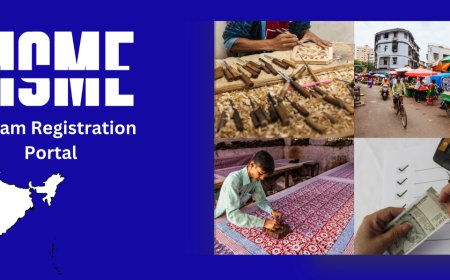ISO 22301 Certification: A Comprehensive Guide to Business Continuity
In today’s fast-paced and unpredictable business environment, ensuring operational resilience is more critical than ever.

Overview of ISO 22301 Certification
ISO 22301 Certification is an internationally recognized standard that demonstrates an organizations ability to manage and mitigate risks that could disrupt its operations. It focuses on business continuity, ensuring that businesses can continue delivering products and services during and after unexpected incidents. Whether its a power outage, supply chain disruption, or a global pandemic, ISO 22301 equips organizations with the tools to maintain critical functions and minimize downtime.
This certification is relevant for businesses of all sizes and industries, from small startups to multinational corporations. By achieving ISO 22301 Certification, organizations signal to stakeholders, clients, and partners that they prioritize resilience and are prepared to handle crises effectively. The certification not only enhances operational reliability but also boosts customer confidence and provides a competitive edge in the marketplace.
The importance of ISO 22301 Certification lies in its structured approach to risk management. It requires organizations to identify potential threats, assess their impact, and develop strategies to mitigate them. This proactive approach ensures that businesses are not caught off guard and can maintain continuity even under challenging circumstances.
ISO 22301 Standard
The ISO 22301 Standard, officially titled ISO 22301:2019 Security and resilience Business continuity management systems Requirements, is the latest version of the standard published by the International Organization for Standardization (ISO). It outlines the requirements for establishing a BCMS that aligns with an organizations objectives and operational needs.
The standard is built on a Plan-Do-Check-Act (PDCA) cycle, which ensures continuous improvement in business continuity processes. Key components of the ISO 22301 Standard include:
-
Context of the Organization: Understanding the internal and external factors that affect business continuity, including stakeholder needs and legal requirements.
-
Leadership and Commitment: Ensuring top management is actively involved in the BCMS, providing resources and setting policies.
-
Risk Assessment and Planning: Identifying potential disruptions and developing strategies to mitigate their impact.
-
Business Continuity Strategies: Establishing procedures to maintain critical operations during disruptions.
-
Performance Evaluation: Monitoring and reviewing the BCMS to ensure its effectiveness.
-
Continuous Improvement: Addressing gaps and improving the system based on audits and feedback.
The ISO 22301 Standard is designed to be flexible, allowing organizations to tailor their BCMS to their specific industry, size, and risk profile. It integrates seamlessly with other ISO standards, such as ISO 27001 (Information Security) and ISO 9001 (Quality Management), enabling businesses to create a cohesive management system.
ISO 22301 Certification Process
Achieving ISO 22301 Certification involves a structured process that requires careful planning and execution. The certification process typically includes the following steps:
-
Gap Analysis: Conduct an initial assessment to identify gaps between the organizations current practices and the requirements of the ISO 22301 Standard. This helps create a roadmap for compliance.
-
BCMS Development: Develop a Business Continuity Management System tailored to the organizations needs. This includes defining policies, identifying risks, and establishing recovery strategies.
-
Implementation: Put the BCMS into action across the organization. This involves training employees, documenting processes, and integrating continuity plans into daily operations.
-
Internal Audit: Conduct an internal audit to evaluate the effectiveness of the BCMS and ensure compliance with the ISO 22301 Standard.
-
Management Review: Engage top management to review the BCMS, address findings from the internal audit, and make necessary improvements.
-
Certification Audit: Hire an accredited certification body to conduct a two-stage external audit:
-
Stage 1: A documentation review to ensure the BCMS meets the standards requirements.
-
Stage 2: An in-depth audit to verify that the BCMS is effectively implemented and operational.
-
-
Certification Issuance: Upon successful completion of the audit, the certification body issues the ISO 22301 Certification, valid for three years.
-
Surveillance Audits: Annual surveillance audits are conducted to ensure ongoing compliance with the standard.
-
Recertification: After three years, a recertification audit is required to renew the certification.
The ISO 22301 Certification process requires commitment from all levels of the organization. Engaging employees and fostering a culture of resilience are critical to its success.
ISO 22301 Certification Cost
The cost of ISO 22301 Certification varies depending on several factors, including the size of the organization, the complexity of its operations, and the certification body chosen. While its difficult to provide an exact figure without specific details, heres a breakdown of the typical costs involved:
-
Gap Analysis: $1,000$5,000, depending on whether its conducted internally or by a consultant.
-
Consulting Services: $5,000$20,000 for assistance with BCMS development and implementation, particularly for organizations new to ISO standards.
-
Training: $500$2,000 per employee for business continuity training and awareness programs.
-
Internal Audit: $1,000$5,000 if conducted by external auditors or consultants.
-
Certification Audit: $5,000$15,000 for the initial Stage 1 and Stage 2 audits, depending on the certification body and organization size.
-
Surveillance Audits: $2,000$5,000 annually to maintain certification.
-
Miscellaneous Costs: Additional expenses may include software for risk management, documentation tools, and employee time allocated to the process.
For small businesses, the total cost of ISO 22301 Certification can range from $10,000 to $30,000, while larger organizations may spend $50,000 or more. Investing in certification can yield significant returns by reducing downtime, enhancing reputation, and avoiding losses from disruptions.
ISO 22301 Certification Requirements
To achieve ISO 22301 Certification, organizations must meet specific requirements outlined in the ISO 22301 Standard. These requirements ensure that the BCMS is robust and capable of handling disruptions. Key requirements include:
-
Business Impact Analysis (BIA): Identify critical business functions and assess the potential impact of disruptions.
-
Risk Assessment: Evaluate risks that could affect business continuity and prioritize mitigation strategies.
-
Business Continuity Policy: Develop a clear policy that outlines the organizations commitment to continuity and resilience.
-
Continuity Plans: Create detailed plans for maintaining operations during disruptions, including recovery time objectives (RTOs) and recovery point objectives (RPOs).
-
Training and Awareness: Ensure employees are trained on their roles in the BCMS and understand the importance of business continuity.
-
Testing and Exercises: Regularly test continuity plans through simulations and drills to identify weaknesses and improve response capabilities.
-
Documentation: Maintain comprehensive records of policies, procedures, and audit results to demonstrate compliance.
-
Management Support: Secure commitment from top management to drive the BCMS and allocate necessary resources.
Meeting these requirements requires a systematic approach and ongoing effort to ensure the BCMS remains effective and aligned with organizational goals.
ISO 22301 Certifications
The term ISO 22301 Certifications often refers to the various certifications an organization can achieve under the ISO 22301 framework. While the primary certification is the ISO 22301 Certification for the organizations BCMS, there are also related certifications for individuals and auditors, such as:
-
Lead Auditor Certification: For professionals who conduct ISO 22301 audits for certification bodies.
-
Lead Implementer Certification: For consultants or employees responsible for designing and implementing a BCMS.
-
Foundation Certification: For individuals seeking a basic understanding of the ISO 22301 Standard.
These certifications enhance the skills of professionals involved in business continuity and contribute to the successful implementation of ISO 22301 Certification within organizations. Organizations may also pursue certifications for specific sites or departments, tailoring the BCMS to their unique needs.
FAQs
1. What is ISO 22301 Certification?
ISO 22301 Certification is a globally recognized standard that certifies an organizations ability to maintain critical operations during disruptions through an effective Business Continuity Management System.
2. How long does it take to achieve ISO 22301 Certification?
The timeline varies, but most organizations take 612 months to prepare, implement, and achieve ISO 22301 Certification, depending on their size and complexity.
3. Is ISO 22301 Certification mandatory?
No, its voluntary. However, many organizations pursue it to enhance resilience, meet client expectations, or comply with industry regulations.
4. How often are audits required for ISO 22301 Certification?
Annual surveillance audits are required to maintain certification, with a full recertification audit every three years.
5. Can small businesses achieve ISO 22301 Certification?
Yes, the ISO 22301 Standard is scalable and applicable to organizations of all sizes, including small businesses.
Conclusion
ISO 22301 Certification is a powerful tool for organizations seeking to safeguard their operations against disruptions. By implementing a robust Business Continuity Management System, businesses can enhance their resilience, protect their reputation, and gain a competitive advantage. The certification process, while demanding, provides a structured path to achieving operational excellence. From understanding the ISO 22301 Standard to navigating the certification process and managing costs, organizations that invest in ISO 22301 Certification position themselves for long-term success in an unpredictable world. Whether youre a small business or a global enterprise, embracing this standard demonstrates a commitment to continuity and reliability that stakeholders value.



























